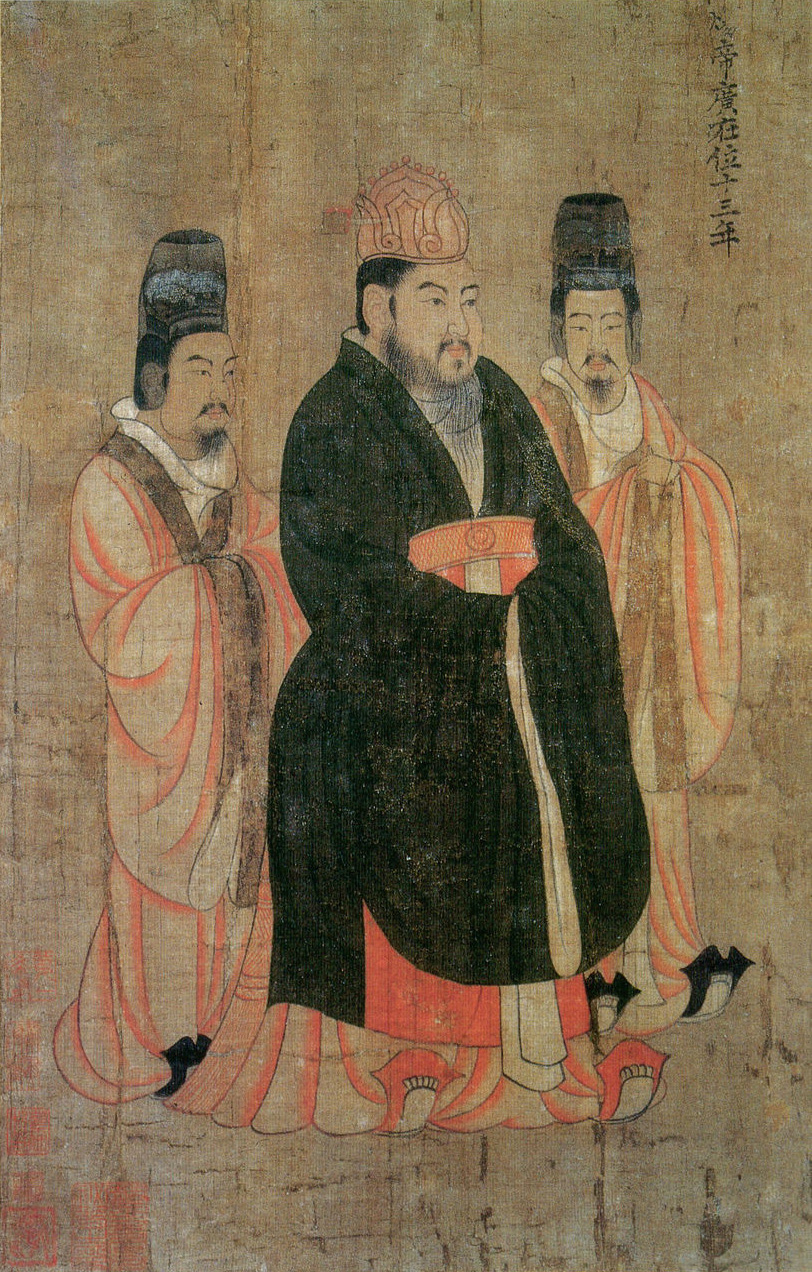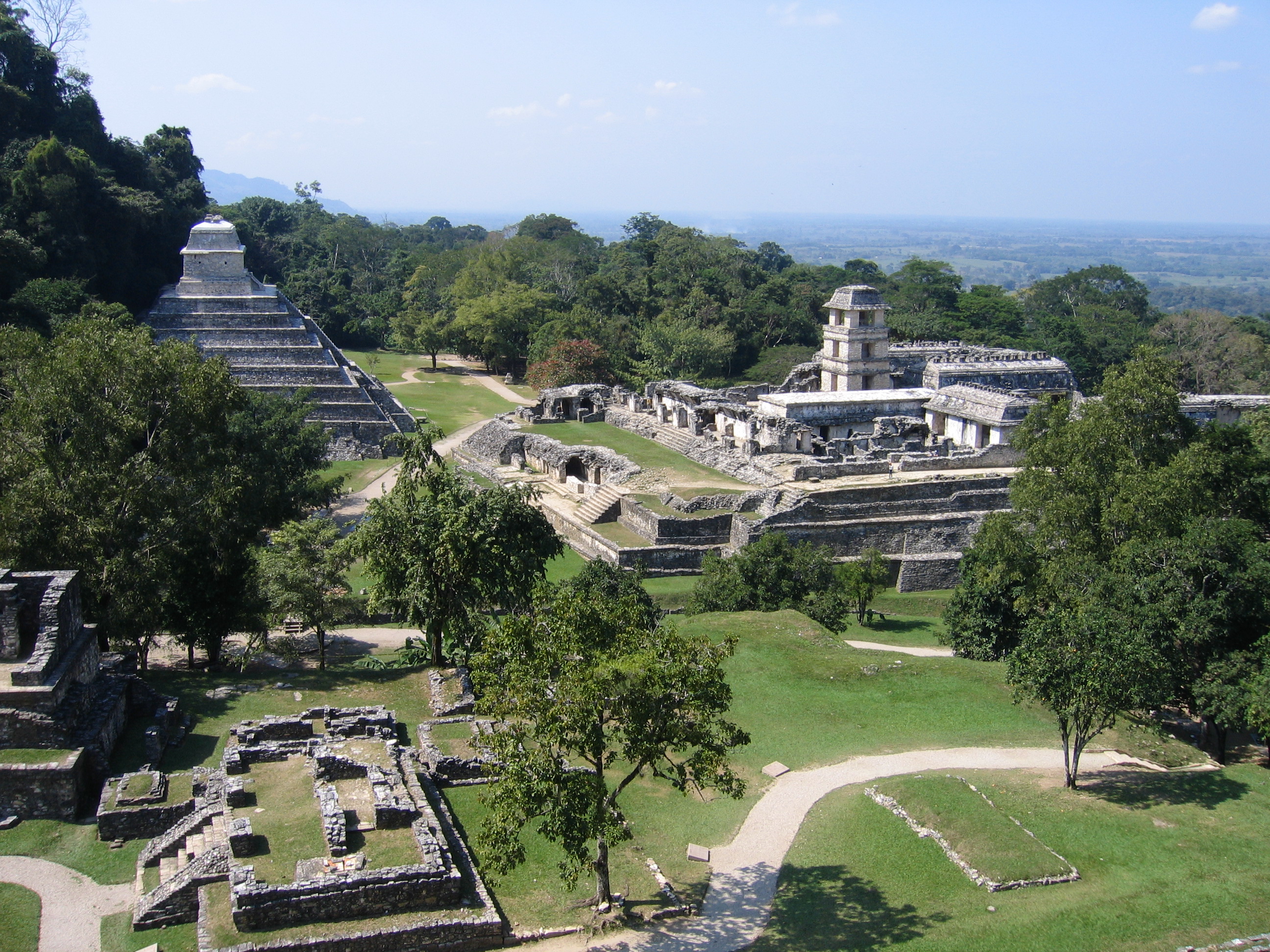|
Li Xuanba
Lǐ Yuán bà (李元霸) (599年-614年) was Tang Gaozu's fourth son, courtesy name Dàdé (大德). He was born by Lady Dou. He died in 614 after being struck on the head by his own weapon. After the establishment of the Tang dynasty, he was posthumously created Prince Huai of Wei. He died sonless, so Li Tai, son of his elder brother Li Shimin Emperor Taizong of Tang (28January 59810July 649), previously Prince of Qin, personal name Li Shimin, was the second emperor of the Tang dynasty of China, ruling from 626 to 649. He is traditionally regarded as a co-founder of the dynasty ..., was created his heir as Prince of Qing. When Li Shimin became emperor, he renamed Li Tai as his own son and created another clansman Li Baoding as heir to Li Yuanba. After Baoding died, also sonless, the Principality of Wei was cancelled. 599 births 614 deaths Deaths by horse-riding accident Sui dynasty people 7th-century Chinese people {{China-bio-stub ... [...More Info...] [...Related Items...] OR: [Wikipedia] [Google] [Baidu] |
Tang Gaozu
Emperor Gaozu of Tang (7 April 566 – 25 June 635, born Li Yuan, courtesy name Shude) was the founding emperor of the Tang dynasty of China, reigning from 618 to 626. Under the Sui dynasty, Li Yuan was the governor in the area of modern-day Shanxi, and was based in Taiyuan. In 615, Li Yuan was assigned to garrison Longxi. He gained much experience by dealing with the Göktürks of the north and was able to pacify them. Li Yuan was also able to gather support from these successes and, with the disintegration of the Sui dynasty in July 617, Li Yuan – urged on by his second son Li Shimin (, the eventual Emperor Taizong) – rose in rebellion. Using the title of "Great Chancellor" (), Li Yuan installed a puppet child emperor, Yang You, but eventually removed him altogether and established the Tang Dynasty in 618 as Emperor. His son and successor Li Shimin honoured him as Gaozu ("high founder") after his death. Emperor Gaozu's reign was concentrated on uniting the empire un ... [...More Info...] [...Related Items...] OR: [Wikipedia] [Google] [Baidu] |
Empress Taimu
Empress Taimu (太穆皇后; 569?-613?) was posthumously honored the first Empress of the Tang Dynasty. She was known as Duchess Dou or Lady Dou throughout her lifetime, and was the wife of Emperor Gaozu and mother of Emperor Taizong. Background Lady Dou was the daughter of Dou Yi and Princess Xiangyang. Dou Yi was the son of Dou Chi (竇熾), a high-level official for both Northern Zhou and later Sui. Dou Yi also had a brother named Dou Wei, a scribe for Yang Xiu, the Prince of Shu, who later served as chancellor during the early years of the Tang dynasty. Her mother Princess Xiangyang was the fifth daughter of Yuwen Tai, Emperor Wen of Northern Zhou, and the sister of Empress Yuwen. As a young child, Lady Dou was raised in the palace and particularly favored by her uncle Yuwen Yong, Emperor Wu. She once recommended Yuwen Yong to establish a relationship between Northern Zhou and Tujue through the Heqin system. As a result, Yuwen Yong married Empress Ashina, the daughter of ... [...More Info...] [...Related Items...] OR: [Wikipedia] [Google] [Baidu] |
Tang Dynasty
The Tang dynasty (, ; zh, t= ), or Tang Empire, was an Dynasties in Chinese history, imperial dynasty of China that ruled from 618 to 907 AD, with an Zhou dynasty (690–705), interregnum between 690 and 705. It was preceded by the Sui dynasty and followed by the Five Dynasties and Ten Kingdoms period. Historians generally regard the Tang as a high point in Chinese civilization, and a Golden age (metaphor), golden age of cosmopolitan culture. Tang territory, acquired through the military campaigns of its early rulers, rivaled that of the Han dynasty. The House of Li, Lǐ family () founded the dynasty, seizing power during the decline and collapse of the Sui Empire and inaugurating a period of progress and stability in the first half of the dynasty's rule. The dynasty was formally interrupted during 690–705 when Empress Wu Zetian seized the throne, proclaiming the Zhou dynasty (690–705), Wu Zhou dynasty and becoming the only legitimate Chinese empress regnant. The devast ... [...More Info...] [...Related Items...] OR: [Wikipedia] [Google] [Baidu] |
Li Tai
Li Tai (; 620 – 14 January 653), courtesy name Huibao (惠褒), nickname Qingque (青雀), formally Prince Gong of Pu (濮恭王), was an imperial prince of the Chinese Tang Dynasty. Li Tai, who carried the title of Prince of Wei, was favored by his father, Emperor Taizong, for his literary talent and studiousness. His older brother Li Chengqian was crown prince, but Li Tai and his associates had design on that position, eventually pushing Li Chengqian to plot treason in 643. After Li Chengqian's plot was discovered, Li Chengqian was deposed, and Emperor Taizong agreed to create Li Tai the new crown prince. However, Emperor Taizong soon saw that Li Tai had pushed Li Chengqian toward rebellion by machination and further appeared to bear ill intentions toward their younger brother Li Zhi the Prince of Jin, and so Emperor Taizong created Li Zhi crown prince instead. Li Tai was reduced in rank and briefly put under house arrest, and then exiled. He died in exile in 653. The Bu ... [...More Info...] [...Related Items...] OR: [Wikipedia] [Google] [Baidu] |
Li Shimin
Emperor Taizong of Tang (28January 59810July 649), previously Prince of Qin, personal name Li Shimin, was the second emperor of the Tang dynasty of China, ruling from 626 to 649. He is traditionally regarded as a co-founder of the dynasty for his role in encouraging Li Yuan, his father, to rebel against the Sui dynasty at Jinyang in 617. Taizong subsequently played a pivotal role in defeating several of the dynasty's most dangerous opponents and solidifying its rule over China. Taizong is considered to be one of the greatest emperors in China's history and henceforth, his reign became regarded as the exemplary model against which all future emperors were measured. His era, the "Reign of Zhenguan ()" is considered a golden age in ancient Chinese history and was treated as required studying material for future crown princes. Taizong continued to develop imperial examination systems. He asked his officers to become loyal to the policies not people, in order to eliminate corru ... [...More Info...] [...Related Items...] OR: [Wikipedia] [Google] [Baidu] |
599 Births
__NOTOC__ Year 599 ( DXCIX) was a common year starting on Thursday (link will display the full calendar) of the Julian calendar. The denomination 599 for this year has been used since the early medieval period, when the Anno Domini calendar era became the prevalent method in Europe for naming years. Events By place Byzantine Empire * Emperor Maurice refuses to pay ransom for 12,000 Byzantine soldiers taken prisoner by the Avars. Their leader Bayan I orders the execution of the prisoners, and slaughters them all. His failure to buy back the captives destroys Maurice's popularity with the Byzantine troops in the Balkan Peninsula. * Summer – Balkan Campaign: The Byzantine generals Priscus and Comentiolus join their forces at Singidunum (modern Belgrade), and move downstream to the fortress city of Viminacium (Serbia). The Byzantines cross the Danube River and invade Upper Moesia, where they defeat the Avars in open battle. * Priscus pursues the fleeing Avar trib ... [...More Info...] [...Related Items...] OR: [Wikipedia] [Google] [Baidu] |
614 Deaths
__NOTOC__ Year 614 ( DCXIV) was a common year starting on Tuesday (link will display the full calendar) of the Julian calendar. The denomination 614 for this year has been used since the early medieval period, when the Anno Domini calendar era became the prevalent method in Europe for naming years. Events By place Byzantine Empire * Byzantine–Sasanian War of 602–628: ** The Levantine cities of Caesarea Maritima, Arsuf, and Tiberias surrender on terms to the Sasanians. ** Sasanian conquest of Jerusalem: A Persian–Jewish army (26,000 men) commanded by Shahrbaraz captures and sacks Jerusalem, after a 20-day siege. Somewhere between 57,000 and 66,500 citizens are slain; another 35,000 are enslaved, including the Patriarch Zacharias. Many churches in the city (including the "Church of the Resurrection" or Holy Sepulchre) are burned, and numerous relics, including the True Cross, the Holy Lance, and the Holy Sponge, are carried off to the Persian capital Ctesiphon. * ... [...More Info...] [...Related Items...] OR: [Wikipedia] [Google] [Baidu] |
Deaths By Horse-riding Accident
Death is the irreversible cessation of all biological functions that sustain an organism. For organisms with a brain, death can also be defined as the irreversible cessation of functioning of the whole brain, including brainstem, and brain death is sometimes used as a legal definition of death. The remains of a former organism normally begin to decompose shortly after death. Death is an inevitable process that eventually occurs in almost all organisms. Death is generally applied to whole organisms; the similar process seen in individual components of an organism, such as cells or tissues, is necrosis. Something that is not considered an organism, such as a virus, can be physically destroyed but is not said to die. As of the early 21st century, over 150,000 humans die each day, with ageing being by far the most common cause of death. Many cultures and religions have the idea of an afterlife, and also may hold the idea of judgement of good and bad deeds in one's life (heaven, ... [...More Info...] [...Related Items...] OR: [Wikipedia] [Google] [Baidu] |
Sui Dynasty People
Sui or SUI may refer to: Places * Sui County, Henan, China * Sui County, Hubei in western Suizhou, Hubei in central China * Suizhou, Hubei, China, formerly Sui County * Sui, Bhiwani, Haryana, India * Sui, Rajasthan, India * Sui, Balochistan, Pakistan ** Sui gas field, near Sui, Balochistan * Switzerland (SUI is its International Olympic Committee code or FIFA country code, based on the French name suisse) * Suisun–Fairfield station, Amtrak station code SUI * State University of Iowa, the legal name of the University of Iowa * Sukhumi Babushara Airport, IATA code SUI People * Sui (surname), a transcription of two Chinese surnames * Sui people, one of the Kam–Sui peoples, an ethnic group of China and Vietnam **Sui language spoken by the Shui * Sui dynasty, a Chinese dynasty that ruled the country in 581–618 * Sui (state), a Zhou-dynasty Chinese state Other * ''Sui'', meaning "years of age" in Chinese age reckoning * ''Sui'' or ''mizu'', 水, meaning "Water" in ... [...More Info...] [...Related Items...] OR: [Wikipedia] [Google] [Baidu] |


